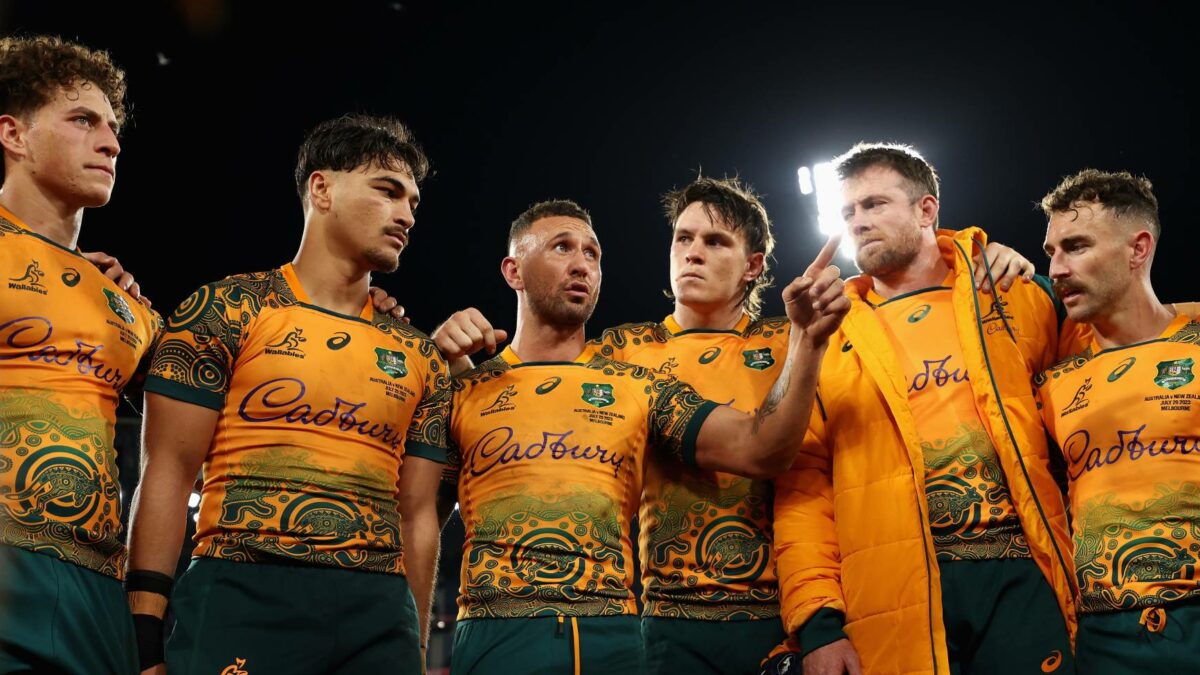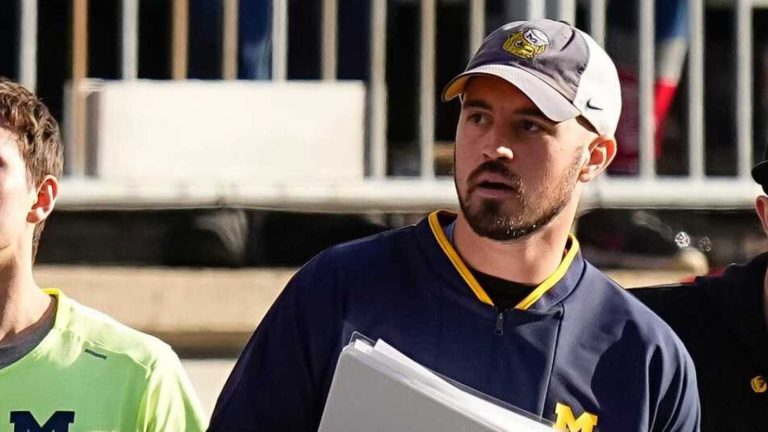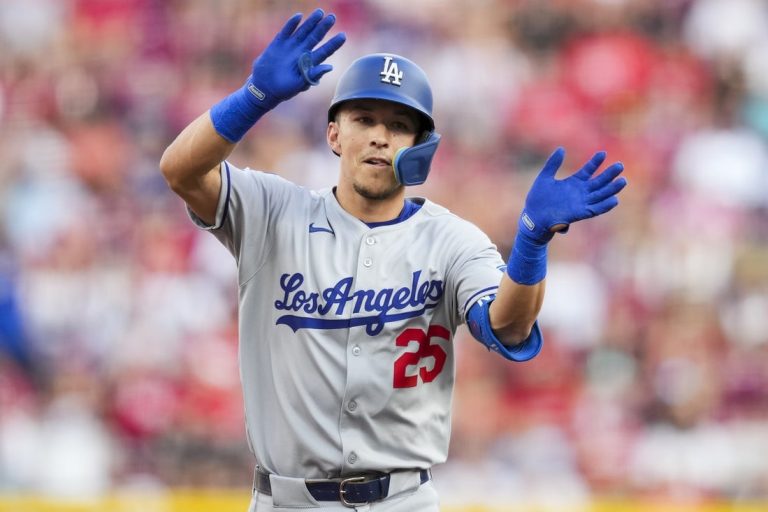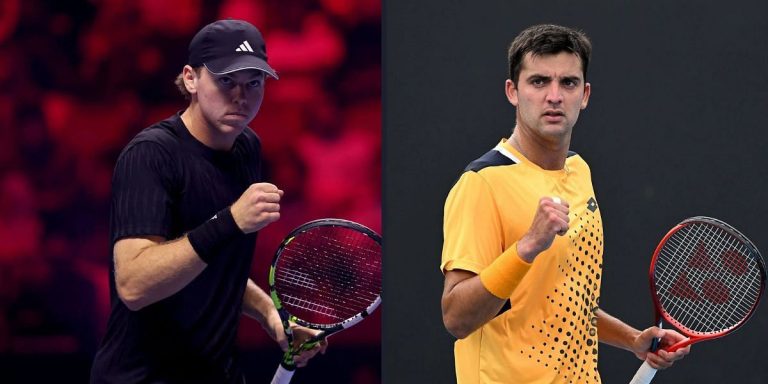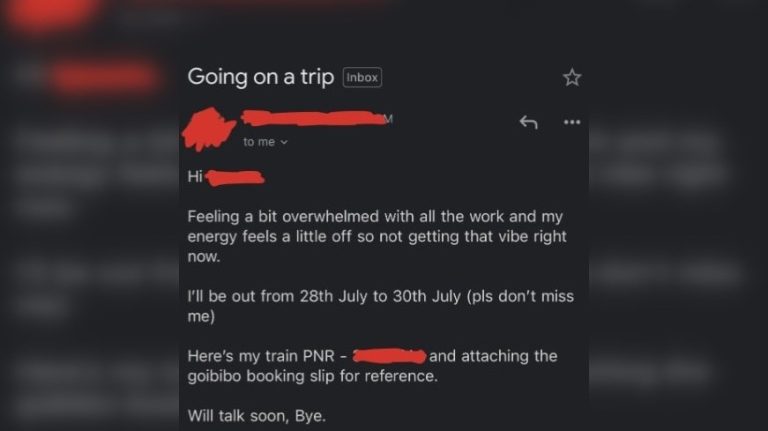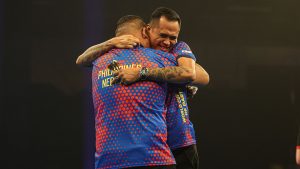Quade Cooper has called on Joe Schmidt to pick James O’Connor to face the Lions and says Australian rugby is being “crippled” by the “constant churn” of Wallabies coaches, which has denied the proud nation an identity.
In a column in News Corp papers on Saturday, Cooper, the 80-Test Wallaby, who was brutally dumped by Eddie Jones on the eve of the 2023 World Cup, said he felt compelled to deliver some “home truths about Australian rugby”.
With an eye on the fast-approaching Lions series, Cooper, who was also sidelined by Robbie Deans the last time the famous side toured Down Under in 2013, offered up his two cents on selection in the backline.
In particular, Cooper said his former teammate O’Connor, who controversially wore the No.10 jersey against the Lions in 2013, needed to return to the Wallabies squad.
The Wallabies maverick said O’Connor offered Schmidt a point of different to the rising cohort of playmakers in Australia.
“This isn’t just about picking names; it’s about building a squad with strategic depth and, more critically, forging a long-lost identity,” Cooper wrote for News Corp.

James O’Connor of the Wallabies looks on during game two of the International Test Series between the Australian Wallabies and the British & Irish Lions at Etihad Stadium on June 29, 2013 in Melbourne, Australia. (Photo by Mark Kolbe/Getty Images)
“Let me be clear – Noah Lolesio, Ben Donaldson, and Tom Lynagh are all quality players. They each bring strong game management, solid kicking games, and composure well beyond their years. The challenge isn’t about their ability, it’s about their similarity.
“They’re all cut from a very similar cloth: smart, skilled, steady. But in a high-stakes series like this, where unpredictability and adaptability are key, you need variety. You need contrast.
“That’s where someone like O’Connor becomes critical.
“His experience, creativity, and ability to see the game from a different angle adds something this group doesn’t yet have. He offers.”
By contrast to the youth emerging in Australian rugby, Lions coach Andy Farrell has picked three playmakers who have all shone on the international stage and had huge success at provincial rugby.
Scottish playmaker Finn Russell is expected to wear the No.10 jersey, but both Fin Smith (Northampton) and Marcus Smith (Harlequins) have won the English Premiership.
English veterans Owen Farrell and George Ford weren’t even selected, but could be drafted into the squad if injuries occur.
Cooper said Farrell could slice the Wallabies apart in several ways, and Schmidt needed to have some options up his sleeve.
“You don’t build a winning squad by picking the same type of player three times over,” Cooper said.
“You build it by creating a mix by bringing different skill sets, mindsets, and backgrounds into the same space. That’s how you get an edge. When you look at the Lions, their tens offer real diversity: Marcus Smith is super agile and creative. Finn Russell is very creative and has unique kicking skills. And if they bring Owen Farrell in at some stage during the tour, he is a very physical fly half who will put a shoulder very aggressively into you. These guys are very different.
“This uniformity in our Australian options is precisely why O’Connor, despite his age of 34, becomes not just a strong contender but an essential component of the Wallabies squad. I believe that to truly challenge an opponent, you need diversity of thought and experience.
“If everyone in the squad learned from the same book, you’re going to get the same answer out of the same textbook when faced with complex challenges.
“You need different perspectives to come up with the best ideas.
“This is where O’Connor’s value truly shines. You need an old head like O’Connor.
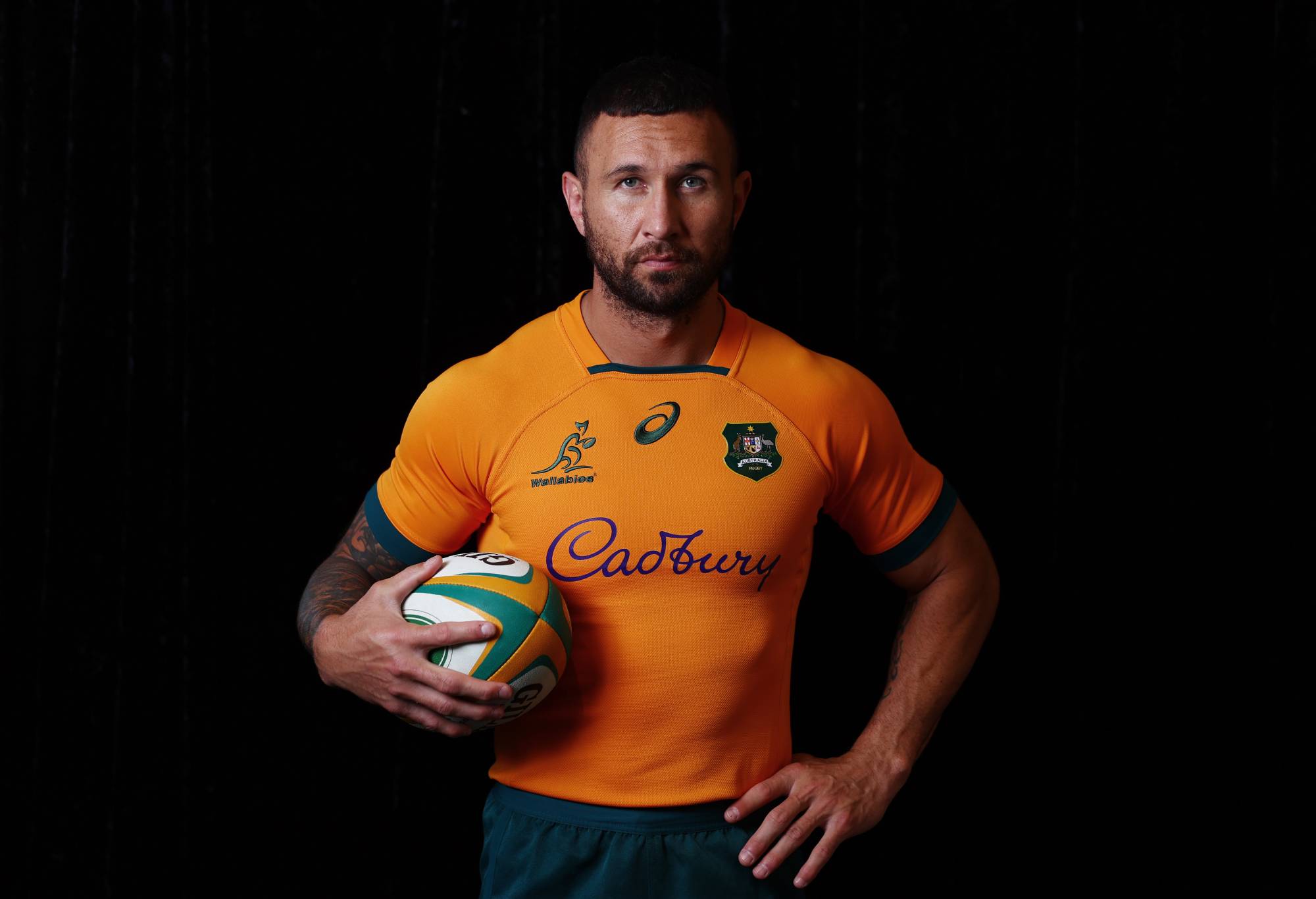
Quade Cooper poses during an Australian Wallabies training session at Royal Pines Resort on July 27, 2022 in Gold Coast, Australia. (Photo by Chris Hyde/Getty Images)
“O’Connor, in particular, has made a compelling case by going over to the Crusaders and putting himself in one of the best teams in the history of the sport. This move to the most successful team in the best competition in the southern hemisphere wasn’t about securing a starting spot but about learning a different way of playing.
“He’s in a mentoring role. He’s there to learn, to guide, support, and compete. His experience in a different system, combined with his competitive drive to push those guys makes him a vital voice – one who can play devil’s advocate a little bit and challenge conventional thinking. For me, he’s one guy that should be in the squad.
“The public needs to understand that if you pick three guys that are exactly the same, the opposing team will have worked out a way to combat or attack them and target them. They won’t have to think anything because they just run the same plan.
“But if you have three guys that have slight differences, opponents will have to figure out three different ways to attack them. More importantly, you’ll have three different minds to be able to put your heads together and think, okay, how can we break down their defence? How can we figure out what they’re trying to run at us and come up with a plan? That’s the key.”
Having played alongside NRL recruit Israel Folau during his time with the Wallabies, Cooper said fellow code-hopper Joseph-Aukuso Suaalii could also prove to be a generational talent.
But Cooper said he would be tempted to play Suaalii on the wing to use his strength in the air, or at inside centre to give the Wallabies a point of difference in the midfield.
“Turning to the midfield, I believe Suaalii can be a generational talent, and the challenge for playmakers is to unlock him and his abilities. While many might eye him for fullback, I’d suggest a shrewd tactical deployment: Suaalii at wing or as a back-up at inside centre,” Cooper wrote.
“Suaalii, despite being relatively new to the game at this level, is an undeniable freak. His raw arsenal is immense: He’s physical, he’s big, can move and has some serious skills on him.
“His skills in the air will make it a nightmare for opposition to mark him on cross-field kicks, and he is a proven finisher.
“But placing that kind of power and dynamism at No.12 immediately creates a defensive headache for the opposition.
“The masterstroke is who he partners with, if Paisami isn’t at inside centre. I unequivocally state that Len Ikitau is, in my opinion, the best No.13 in the world right now.
“Ikitau is a certainty to start, offering a left foot and unparalleled defensive prowess. There is no better defensive 13 than him in the game.
“The thought of pairing Suaalii’s attacking threat and sheer physicality at 12 with Ikitau’s world-class defensive solidity and skill at 13 is mouth-watering. I think it’s a lethal combination.
“This partnership would offer both a devastating attacking platform and a defensive wall in the heart of the field, which is crucial against a big, physical, skilled Lions team.”
Cooper served his biggest roast for the game’s administration, having consistently looked for the short-term hit by changing the coach “every freaking two years”.
Having debuted for the Wallabies in late 2008, Cooper played under five coaches, including Robbie Deans, Ewen McKenzie, Michael Cheika, Dave Rennie and Jones.
Schmidt took over in 2024, but will step away in mid-2026 before Les Kiss leads the Wallabies through to the World Cup.
Cooper said the constant swapping and changing was proving detrimental and denying Australian rugby the chance to discover its DNA.
“The most frustrating narrative around the Wallabies over the past decade has been that we don’t produce quality playmakers,” Cooper said.
“I’ve been in the No.10 jersey for the Wallabies. I’ve copped the pressure, the praise, the criticism. I know what it’s like to try and lead a team through the chaos of constant change, all while trying to make sense of what Australian rugby actually stands for.
“The core problem is that the coaches change every freaking two years.
“This constant churn means you’re changing the program every two years, and so consistent development is impossible.
“When a new coach sweeps in, the whole set-up changes, the structure of the camps, the structure of who’s coaching, the structure of how you’re playing.
“This isn’t just disruptive; it’s crippling. Australia has been unable to cultivate a distinct style of play because they’re trying to get the best coach that’s out there right now, rather than adhering to a foundational Australian identity.
“As a result, Australian play over the last 15 years has had no identity to it.”
